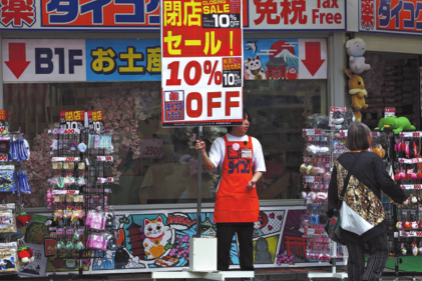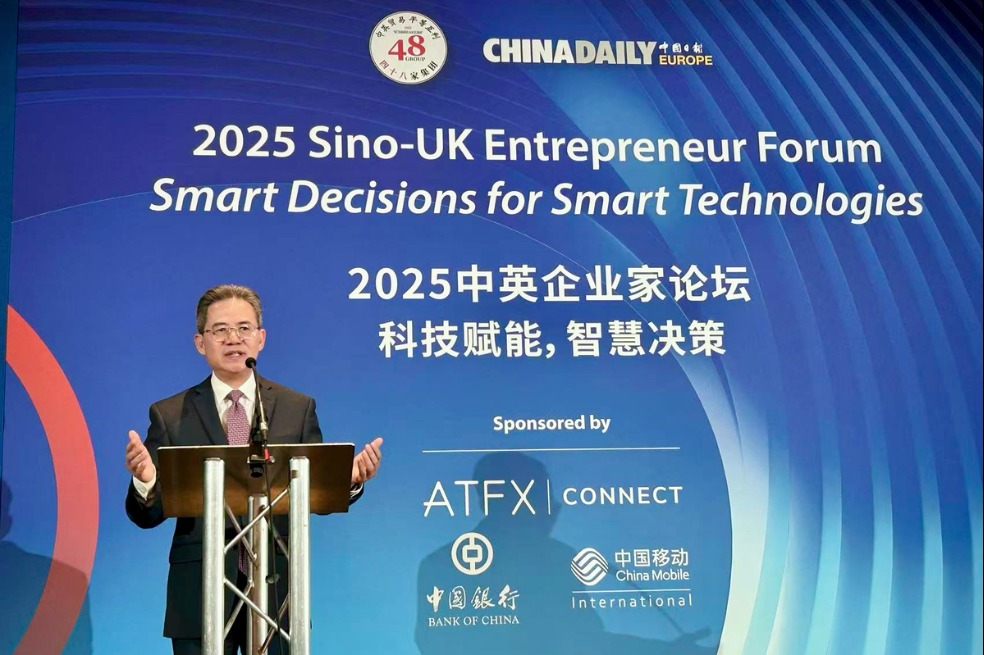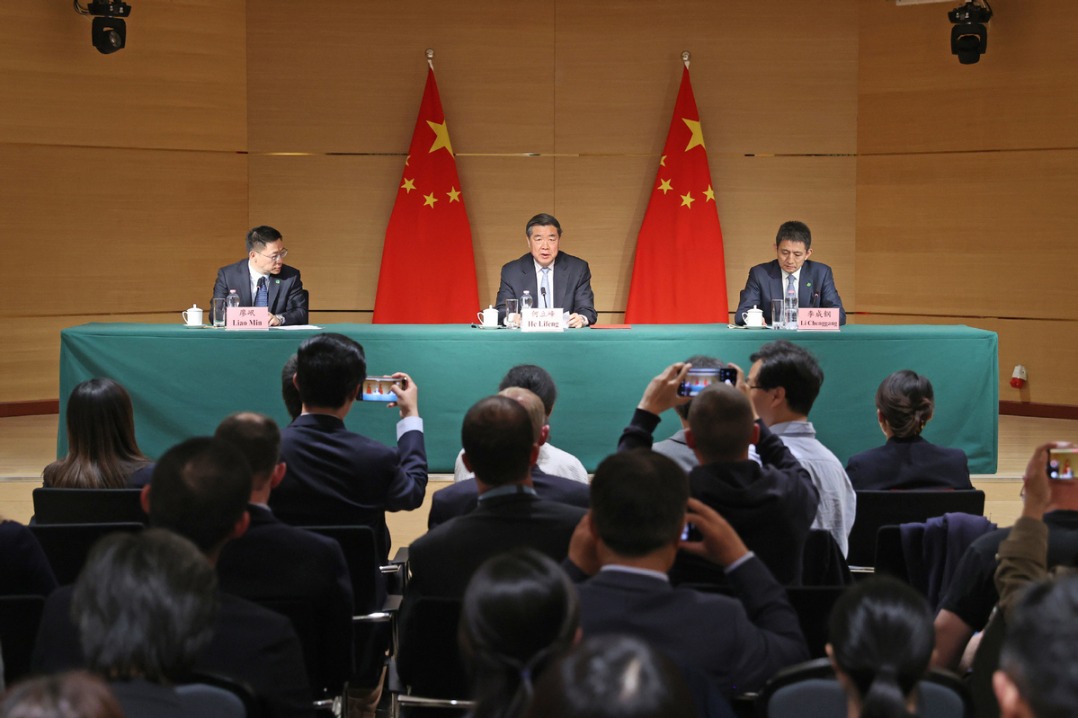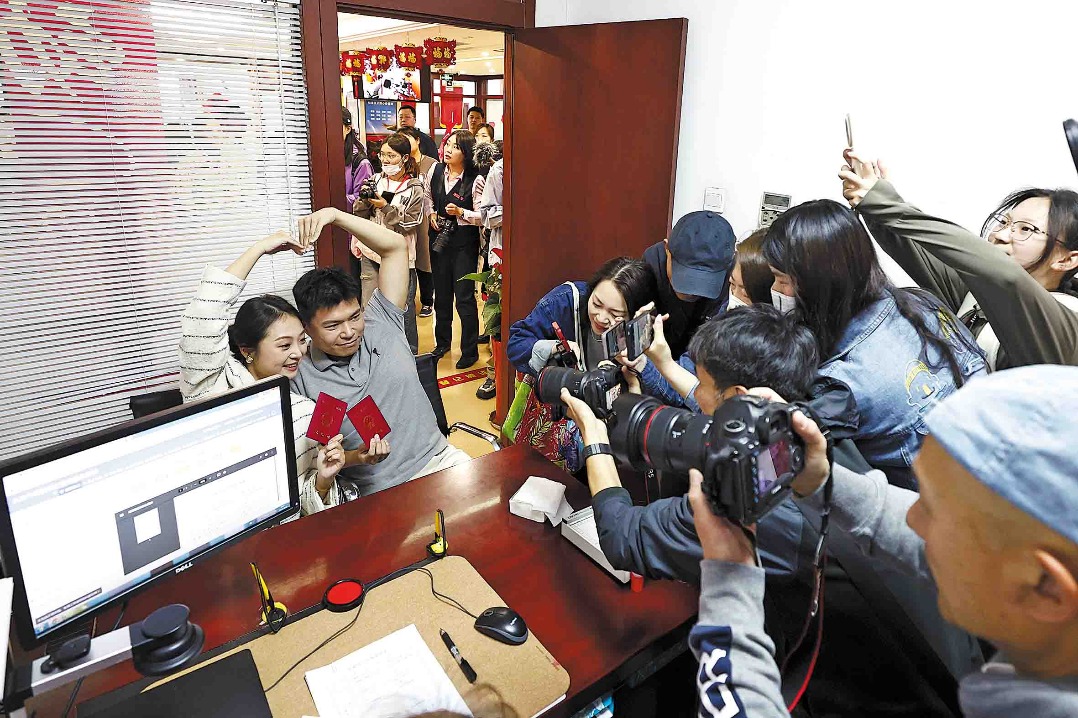Japan's economy shrinks, fueling fear of recession
By JIANG XUEQING in Tokyo | China Daily | Updated: 2025-05-17 10:21

Japan's economy shrank for the first time in four quarters during the three months that ended in March, as weak private consumption and a 0.6 percent quarter-on-quarter drop in exports — also the first in a year — dragged the growth down.
The country's seasonally-adjusted real GDP fell 0.2 percent in the first quarter from the previous three months, translating into an annualized decline of 0.7 percent, according to preliminary government data released on Friday. The contraction exceeded the median market forecast of a 0.2 percent annualized decline.
Economists said the first quarter figures highlight the underlying fragility of Japan's economy and warned that the effects of US tariff measures are likely to become more evident in the current quarter.
Takahide Kiuchi, executive economist at the Nomura Research Institute, said the figures suggest the US government's tariffs could further push Japan's economy into recession.
Meanwhile, major Japanese automakers are bracing for projected profit declines in the fiscal year ending March 2026, citing growing concerns over US tariffs and a stronger yen.
Multiple companies pointed to tariffs imposed by the US government on auto imports as a key driver of their cautious outlook, with currency fluctuations adding further pressure.
Toyota Motor expects its net profit to fall 34.9 percent year-on-year to 3.1 trillion yen ($21.33 billion), estimating that US tariffs in April and May alone will cut operating profit by 180 billion yen.
Honda projects a steeper 70.1 percent drop in net profit to 250 billion yen, attributing the decline to both tariffs and exchange rate volatility.
Nissan, facing more severe challenges, unveiled sweeping restructuring plans, including the closure of seven out of 17 factories and 20,000 global job cuts. The company declined to issue a profit forecast, citing the uncertain nature of US tariff policy. Mazda and Subaru also withheld earnings guidance amid the uncertainty.
Japan's auto industry is facing tough times due to rising tariffs, a stronger yen, and mounting competition from Chinese carmakers. This challenging business environment could lead to industry realignment, said Fumio Matsumoto, chief strategist at Okasan Securities.
Given the automotive industry's extensive reach across various sectors, a 25 percent US tariff on imported vehicles would deliver "a massive blow to the Japanese economy", warned Kiuchi at the Nomura Research Institute. He cautioned that such a measure would likely lead to reduced domestic production and job losses.
Japan's auto manufacturing and related industries employ 5.58 million people, 8.3 percent of the nation's total workforce, according to a report published by the Japan Automobile Manufacturers Association in 2024.
Kiuchi estimated that the 24 percent "reciprocal tariff" from the US would lower Japan's nominal and real GDP by 0.59 percent. When combined with the 25 percent auto tariff, the total impact could reach between 0.71 and 0.76 percent.
A recent survey shows that roughly one-third of 630 constituent companies of the Tokyo Stock Exchange's benchmark TOPIX index that had announced business results by Monday expect lower profits this fiscal year compared to the previous one.
Drop in net profits
According to SMBC Nikko Securities, which analyzed the earnings reports, 35 percent — or 224 companies — are projecting a drop in net profits, public broadcaster NHK reported.
Commenting on projections that some major Japanese companies will see sharp profit declines this fiscal year due to US tariff measures, Ken Kobayashi, chairman of the Japan Chamber of Commerce and Industry, expressed concern at a news conference on Wednesday.
"I'm deeply concerned that anxiety over the impact of tariffs could dampen wage increases," he said, urging large corporations not to put the brakes on the current momentum of wage hikes.
Meanwhile, Masakazu Tokura, chairman of the Japan Business Federation, said at a news conference on May 7 that "many companies are more concerned about the indirect effects of weak consumption and investment caused by the uncertain outlook, rather than the direct impact of the US government's tariffs".
Tokura stressed the importance of thorough negotiations to ensure that all tariff measures are carefully reviewed, warning against rushing a deal. At the same time, he also urged active efforts to remove high tariffs already impacting the economy as soon as possible through determined dialogue.
jiangxueqing@chinadaily.com.cn
























